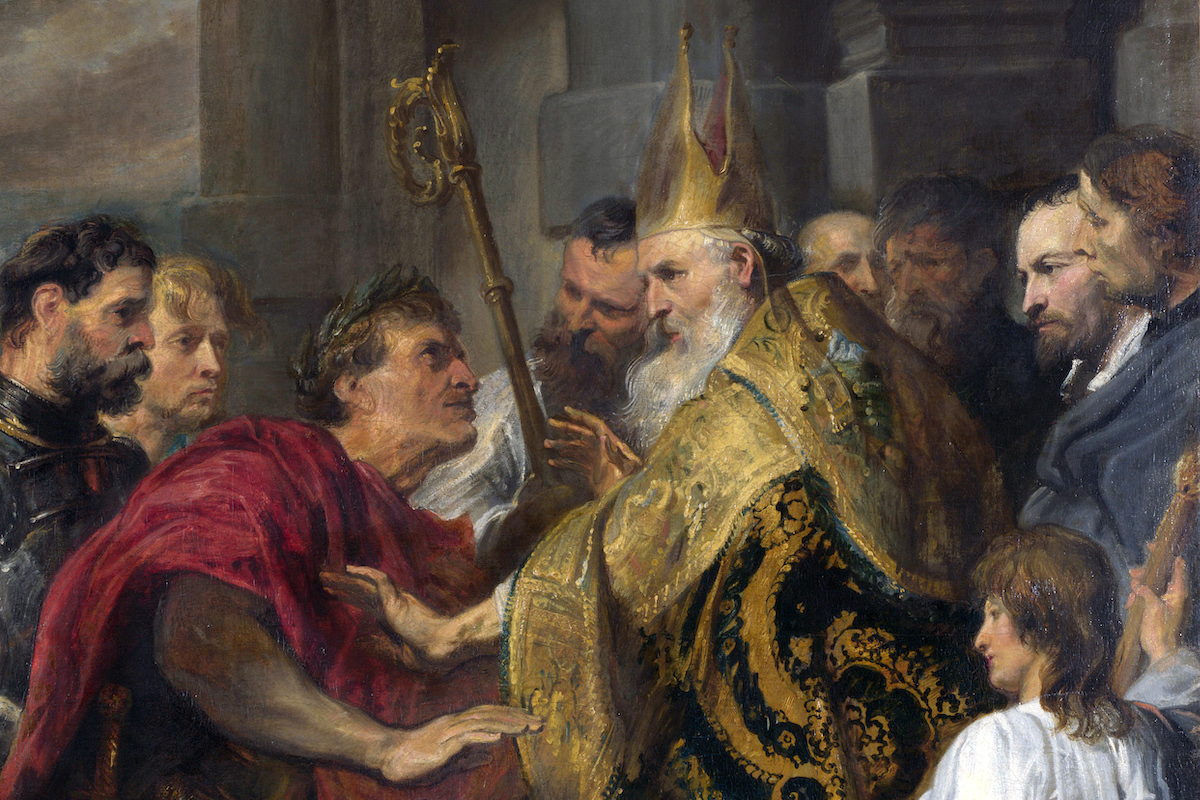recent
A Christmas Message from Quillette
In Christian history, Thessalonica is better known for the epistles that Paul the Apostle wrote to members of the city’s community, and which became part of the New Testament.

In 390 AD, residents of Thessalonica rose up against the Gothic militia guarding the Greek city under the authority of Roman emperor Theodosius. The provocation that sparked the unrest—the arrest of a popular charioteer for homosexual conduct (which the Goths reviled, but ordinary Thessalonians shrugged off)—was trivial. But the berserk mob took the opportunity to vent accumulated grievances by butchering the Gothic constabulary. When Theodosius heard the news, he flew into his own rage, and dispatched a larger force to exact retribution. These soldiers surrounded the city’s horse track and butchered 7,000 innocent spectators to death. Even by the standards of the era, this was seen as a truly wicked act. Theodosius himself, an observant Christian, was wracked with guilt.
In Christian history, Thessalonica is better known for the epistles that Paul the Apostle wrote to members of the city’s community, and which became part of the New Testament. Certainly, this ancient war crime is rarely a story that gets told through carols and holiday television specials. But aside from being a time for family gatherings and gift-giving, Christmas now is the only time of year when many of us stop to think seriously about the Christian tradition that lies at the heart of Western culture. And some of the most important and enduring elements of that tradition first took recognizable shape following the Massacre of Thessalonica, when Ambrose, bishop of Milan, called out Theodosius personally in front of his entire congregation.
It was a stunning rebuke of imperial authority, and one that would have cost most holy men their heads. But the combination of Theodosius’ piety and Ambrose’s stern conviction changed the balance of power between church and state. At the First Council of Nicaea in 325, Constantine I had made a great show of deference to the judgment of the assembled bishops. Yet there then had been no question that the power to approve and enforce those judgments lay with the Emperor. Under Ambrose and Theodosius, that hierarchy was upended. For months after his expulsion from Ambrose’s church, the Emperor begged and bargained for the bishop’s forgiveness.

It is easy to look back on Christian history and deride it as nothing but a long parade of inquisitions, crusades and witch hunts. But the events of 390 remind us how Christianity also gave Western societies a universally accessible moral vocabulary to describe good and evil in a way that transcended raw power and the bigotry of tribe.
In his letter to Theodosius, Ambrose did not make threats or demands. He presented himself as a servant of God following the dictates of scripture. “If the priest speak not to him that errs, he who errs shall die in his sin, and the priest shall be liable to the penalty because he warned not the erring,” he wrote, citing Ezekiel 3:18 and Matthew 28:20. “Sin is not done away but by tears and penitence. Neither angel can do it, nor archangel. The Lord Himself, Who alone can say, ‘I am with you’ if we have sinned, does not forgive any but those who repent.”
Alas, there exists no piety that the most grasping among us won’t put at the service of their own advancement. And Christianity no sooner had become Rome’s dominant religion than power-hungry civic leaders began exploiting its dogmas as a means to launder their reputations and destroy their enemies—a pattern that has survived only too well in our own secularized age.
On a local level, this took the form of mobs and demagogues seizing property from pagans and non-trinitarian Christian heretics. But even St. Ambrose played the same game, writ large: His drawn-out humiliation of Theodosius came at a time when his political power in Milan had fallen from its peak under the rule of Valentinian I. And he leveraged the prestige of his post, along with the disgrace of the Emperor, to reassert himself in the new order. When it suited his Christian agenda, Ambrose also countenanced cruelties on his own account, such as in 388, when he excused the destruction of a synagogue by a Christian mob in the city of Callinicum, in modern-day Syria, on the proto-anti-Semitic basis that this was “a home of unbelief, a house of impiety, a receptacle of folly, which God Himself has condemned.” (Callincium is now known as Raqqa, infamous in modern times as the capital of ISIS. As the saying goes, history doesn’t always repeat itself. But it often rhymes.)
Rome’s pagan gods had been valued in proportion to their perceived power to summon military success and economic prosperity. Yet paradoxically, the chaos and destruction of late antiquity only nourished Christian believers’ zeal. In The City of God, written after Alaric I had laid waste to Rome in 410, Augustine of Hippo urged believers to separate their understanding of life’s materialistic missions from the fate of the Earthly City. “What are kingdoms without justice?” He asked. “They’re just gangs of bandits.”
Augustine rejected claims that The City of God had been written as a political work. Yet this central question—“What are kingdoms without justice?”—is still one we ask our leaders to this day. And now, as then, the most powerful among us can be laid low by demands for “tears and repentance.” Even the rituals we use—confession, repentance, restitution—would be recognizable to Ambrose. Indeed, the reason these times we inhabit often seem so agitated is that we still haven’t figured out how to replace traditional forms of moral judgment. By cultural reflex, we persist with Ambrose’s accusatory rituals—but without the sense of consolation and social solidarity offered by Augustine.
One of our projects at Quillette is to help readers think about these tensions in our intellectual life, and to provide a forum for solutions. Our editors and writers include members of many religions—as well as atheists who disdain all faiths in equal measure. Nevertheless, we wish our readers a Merry Christmas without apology or hesitation. For the story that began with the birth of Jesus of Nazareth not only shaped the world we all now live in, it also can inspire us as we seek to free ourselves from the gangs of bandits laying siege to our kingdoms.
Featured image: Saint Ambrose barring Theodosius from Milan Cathedral, by Anthony van Dyck (1599-1641).






